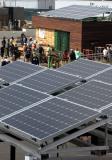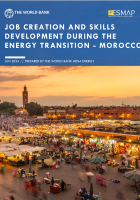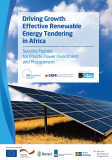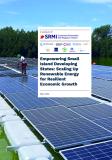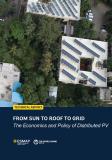Publications
The Energy Sector Management Assistance Program (ESMAP) is a partnership between the World Bank and 24 partners to help low- and middle-income countries reduce poverty and boost growth through sustainable energy solutions. This report on Morocco is one of three country case studies under Phase 2 of the umbrella project called The Disruptive Energy Transition and Opportunities for Job Creation in the Middle East and North Africa. The energy transition is expected to have a positive impact on the Moroccan labor market. It could create 25,000 net jobs per year over the period 2020–2050. Morocco holds a premier spot in the energy transition of the Middle East and North Africa (MENA) region. The strong job creation forecast is already tangible, with 68 percent of VSMEs (very small, small, and medium enterprises) in the clean energy sector planning to expand their workforce within three years. It is in this context that the World Bank is assessing the opportunities for and challenges to achieving this job creation potential, helping countries formulate, adopt, and implement appropriate policies, incentive systems, infrastructure, institutions, programs, and human capital development frameworks. The goal is to create an enabling environment for job creation and transformation, particularly for developing the necessary green workforce for a clean energy transition. This report focuses on the renewable energy sector (solar photovoltaic, concentrated solar power, and wind) as well as on the energy efficiency of buildings. Besides providing inputs to clean energy and education projects, this study has also informed Morocco’s recent Country Climate and Development Report (CCDR).
Alexis, Gazzon; Robert, Jean-Gabriel; Decoopman, Camille; Lévêque, Emeline; Dinard, Adrien; Zeddou, Nadia.
Job Creation and Skills Development During the Energy Transition - Morocco (English). ESMAP Paper. Washington, D.C. : World Bank Group. http://documents.worldbank.org/curated/en/099012324071522189/P1705461161e5d8813e9114dbf1b92a137252142a242
